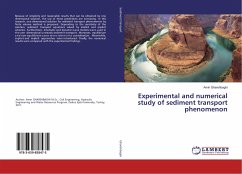Experimental training in Engineering degrees, mainly in specific subjects, is a necessary requirement to achieve the objectives proposed by these careers. Laboratory practices help the engineering student to handle the basic concepts of scientific experimentation, to acquire skills in the manipulation and assembly of specialized equipment, to collect, analyze, validate and interpret the data obtained experimentally and to use the experimental results to validate the mathematical model that represents the phenomenon studied.The research activities developed in the framework of approved projects also have a very important role as a complement in the training of future researchers and teachers. In addition, they allow interaction and the transfer of new knowledge from research groups to undergraduate students, especially in areas that are not included in the syllabus of the degree course.
Hinweis: Dieser Artikel kann nur an eine deutsche Lieferadresse ausgeliefert werden.
Hinweis: Dieser Artikel kann nur an eine deutsche Lieferadresse ausgeliefert werden.








